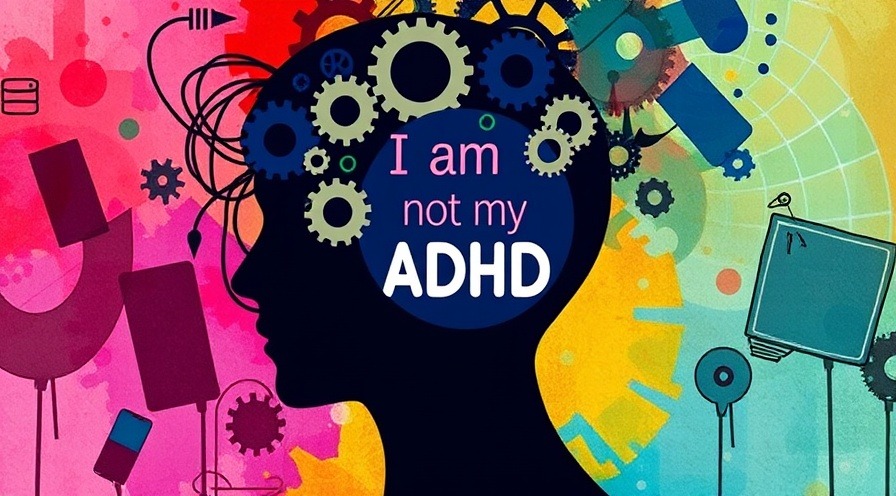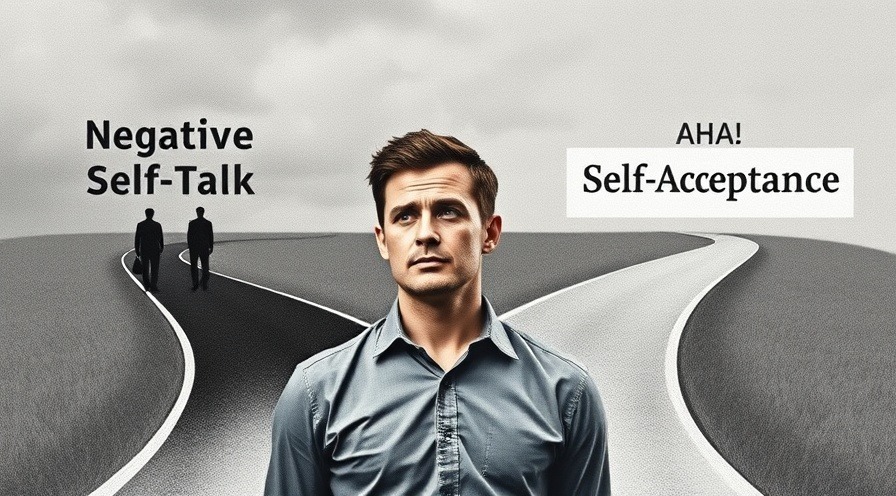
The Brain's Sneaky Trick: How ADHD Rewires Your Self-Perception & How to Break Free
Ever feel like your brain is playing a constant game of "I'm not good enough"? Or perhaps it’s more like "I'll never get this right"? If you live with ADHD, these nagging thoughts about yourself aren't just random musings – they’re often deeply ingrained beliefs shaped by your unique experiences. And trust me, you're not alone in this mental maze!
As someone with a child dealing with ADHD, I know how crucial it is to understand the why behind their struggles. Today, we're diving deep into how ADHD can fundamentally alter how you see yourself, using insights from a respected voice in mental health, Dr. Tracey Marks.
A Framework for Understanding: Schema Therapy
To truly grasp this, we need a framework. Dr. Tracey Marks, a psychiatrist and mental health education video creator, explains that what we think about ourselves impacts how we relate to others and the decisions we make daily. She bases her discussion on schema therapy, which she describes as "a framework for how you see yourself". Think of it as a lens through which you view the world and, more importantly, yourself. This lens is built early in life but can adjust with new experiences.
While there are 18 identified schemas (or core beliefs), Dr. Marks highlights three that are remarkably common in adults with ADHD, even if they weren't diagnosed as children. Let's unpack them.
The Three Core Beliefs Common in ADHD
1. Feeling Defective (The "I'm Just Not Wired Right" Schema) This core belief isn't just about feeling inadequate; it's a profound sense of inadequacy at all levels. If this sounds familiar, you might find yourself hyper-sensitive to criticism and rejection, constantly feeling insecure around people, and in a perpetual state of comparing yourself to others. It's like your brain has a built-in "compare and despair" button that gets pushed way too often!
2. A Basic Sense of Failure (The "Doom & Gloom" Schema) Have you ever felt like you haven't quite hit your potential? This schema is about a pervasive feeling of being inept, stupid, lacking talent, or simply "doomed to be less successful than everyone else". This isn't just a fleeting bad mood; it's a deep-seated conviction that can lead you to give up easily on things or, even more frustratingly, not even try at all because, well, "what's the point? I'm not gonna be good at it anyway!". It's like your inner monologue has already written the tragic ending before the story even begins.
3. Insufficient Self-Control (The "Can't Trust Myself" Schema) This one hits close to home for many with ADHD. It's the feeling that you simply "can't rely on yourself to accomplish the things that you need to". Perhaps you struggle with tolerating the frustration that comes with waiting for a desired outcome, or you find yourself avoiding responsibilities and duties that are uncomfortable, even if it means missing out on opportunities that could advance you. It's that voice that whispers, "You'll just mess it up, so why bother committing?"

How These Beliefs Take Root: The ADHD Experience
So, how do these challenging beliefs develop? Dr. Marks explains that it's a cycle fueled by the very nature of ADHD itself.
Imagine years of:
Early experiences of failure and underachievement that bring shame.
Impulsivity or hyperactivity leading to disciplinary problems, making you feel like a "bad kid".
Interrupting people (oops!) leading to criticism and rejection, making others think you’re selfish.
Difficulty staying interested making you appear uninvested, unreliable, or "flaky".
Poor time management leading to missed opportunities and, understandably, angry people.
Add to this the constant observation that your peers seem to "get things right the first time," while you have to redo tasks over and over and still might not get the desired outcome. This constant negative appraisal from others, combined with your own internal comparisons, builds a potent cocktail of pessimism, self-doubt, and low self-esteem.
The Vicious Cycle: ADHD's Self-Perpetuating Loop
This negative appraisal often leads to destructive internal monologues: "I'm incapable," "I'm unlovable," "I'll never be able to do this," or "I'll never get to where I want to be". These thoughts then trigger maladaptive coping strategies like procrastination or outright avoidance. You might find yourself engaging in more impulsive behavior, crisis managing rather than planning.
And here's the kicker: these behaviors, in turn, create a cascade of negative emotions – depression, anxiety, guilt, anger, and frustration. As Dr. Marks wisely points out, "then these coping strategies and negative emotions confirm your core beliefs that you're defective, you're a failure and you have insufficient self-control. So it's a cycle that perpetuates itself". Your brain is essentially providing "proof" for its negative assumptions, trapping you in a feedback loop!
Breaking Free: Reclaiming Your Self-Perception
So, what can we do about this powerful cycle? Dr. Marks suggests two key goals:
Change your core beliefs about yourself. These beliefs are the fuel for dysfunctional behaviors like avoidance and procrastination, which only create more problems.
Change your coping strategies to modify your schemas. When you start getting more positive feedback from others and yourself, it begins to reshape your beliefs. Think about it: losing multiple jobs because of difficulties can reinforce a negative schema, but holding a job and getting promoted because of great work can form a positive one.
While schema therapy is a powerful approach that combines cognitive behavioral therapy (CBT) with other styles, Dr. Marks notes it's not a self-help solution; it typically requires a therapist trained in this specific modality. However, just recognizing these common thought patterns is incredibly valuable.
The experiences that come with ADHD can absolutely batter your self-esteem, making you feel like you're "limping along emotionally". But here's the profound truth Dr. Marks wants us to grasp: "The conclusions that you draw about what those experiences say about you is not fully accurate".
Yes, the deficits that come with ADHD create real problems and negative consequences. "But it's a disorder that creates negative consequences. You can manage the negative consequences but you are not the negative consequences". You are separate from them, and you have the ability to take control and manage them.
It’s easy to get lost in the overwhelming consequences of ADHD and forget the distinction between you and the disorder. Your ADHD might create challenges, but it doesn't define your worth or your potential. By understanding these core beliefs and the cycle they create, you can begin to challenge the narrative and step into a more empowered view of yourself. It's time to start writing your own story!
Disclaimer:Please remember, this article provides general information and is not a substitute for professional medical advice. If you suspect you have ADHD or are struggling with your mental health, please consult a qualified healthcare professional.
 Add Row
Add Row  Add
Add 




 Add Row
Add Row  Add
Add 

Write A Comment